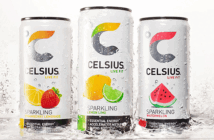
The research found that the alcohol sector contributes $1.92 billion to gross domestic product, pays $1.819 billion in excise tax and GST, spends $2.02 billion on local goods and services and generates $2.09 billion in exports.
However, Government statistics show that alcohol consumption has fallen around 25% since the 70s and 80s.
“The report shows that the 1,865 beer, wine, and spirits businesses employ around 10,200 people from boutique distilleries in rural areas, specialty production in the regions to head offices in city centres. In addition, another 20,900 are employed indirectly from businesses in the supply chain, from yeast producers and hops growers to packaging, logistics and shipping. As a supplier itself, the industry connects to the hospitality industry, which employs around 172,000 in cafes, bars, restaurants, hotels and events businesses,” says NZABC’s executive director, Bridget MacDonald.
The report also details how the industry and society have changed over the last couple of decades.
“People are drinking less and becoming more moderate consumers. It’s more about socialising with family and friends over food and a drink––and if people choose not to drink, that’s okay too. We are seeing a shift toward more mindful drinking where consumers sip and savour higher quality beverages or choose no- and low-alcohol options,” MacDonald says.
“There’s also a definite shift, as in most western countries around the world, to supporting local producers. We’re appreciating locally-sourced talent and goods, which is sustaining the growth of our boutique wineries, distilleries and breweries.
“It’s an exciting time for our industry––we are diversifying our product ranges in response to consumer demands and trends. The challenges of today are becoming the opportunities for tomorrow, and this encourages innovation and investment in research and development right throughout the industry––from developing unique hops varieties for beer, embracing indigenous ingredients for spirits to refining viticulture practices to create lower alcohol wines.
“The conscious consumer is not just looking for lower carb but also lower carbon. Industry’s commitment toward carbon-zero and sustainability targets is driving innovation across all aspects of business from sustainable supply chains, recyclable packaging, refining manufacturing processes, zero waste initiatives, reusing byproducts, reducing water and supporting local goods and services.”




























































































